PhD Year One
Post archived from How to be an Anthropologist. Jun. 9, 2014.
I recently finished my first year of my PhD program in anthropology at Binghamton University. Now, I am course complete and working on bibliographies for my qualifying exams. This post is a look back over this year.
This year I have taken six courses, three each semester.

Between August 26 and May 14, I went to 109 class sessions for a total of 276 hours in class.

Reading
In 262 days I completed 160 reading assignments: 129 articles and 31 books. (Not including reading for research.)
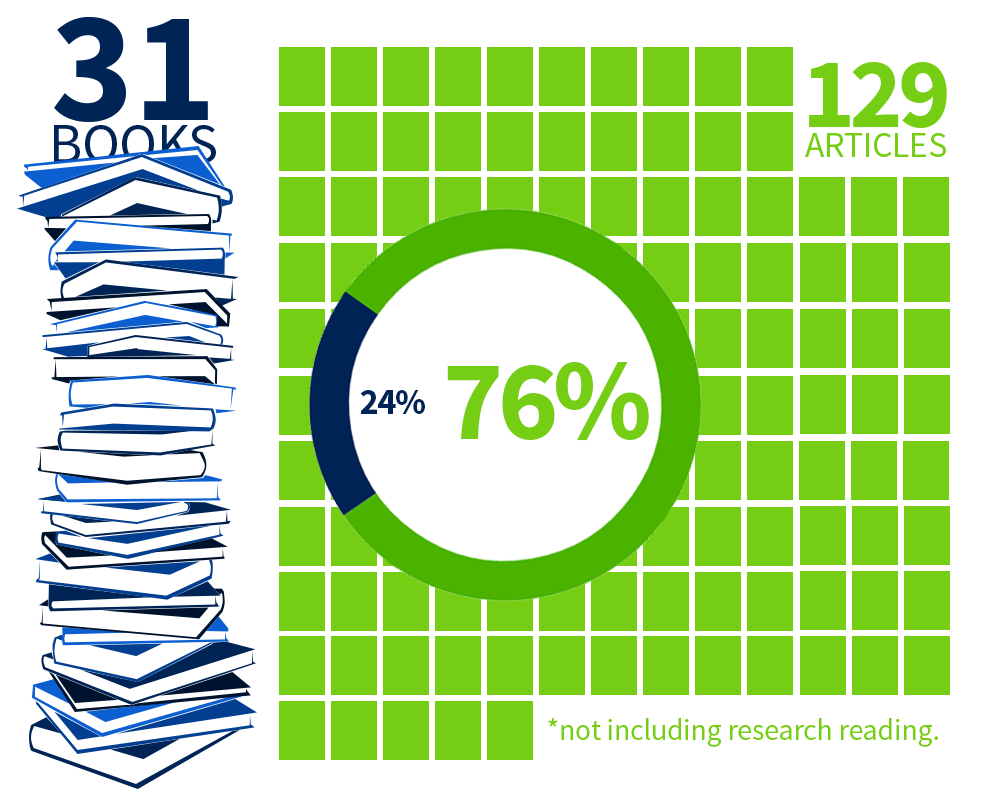
That is 12,380 pages total.

Approximately 47.25 pages per day.
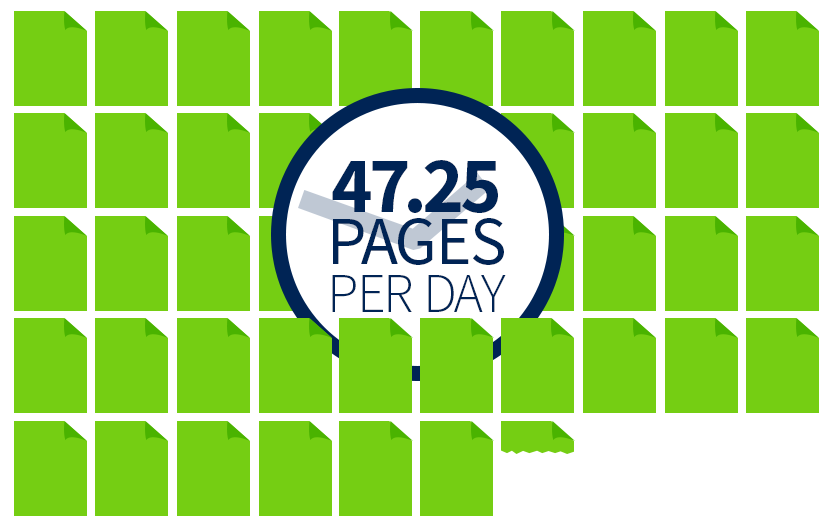
Approximately 2,063 pages of assigned reading per course.
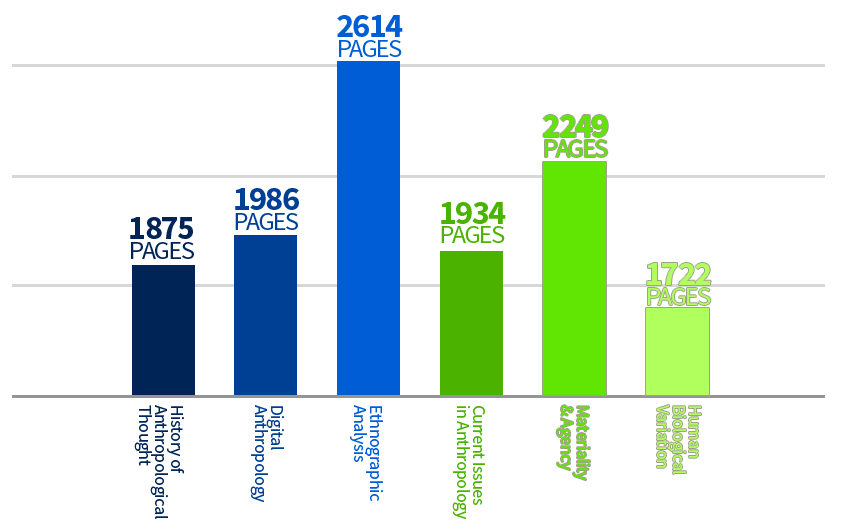
Writing
In 262 days I wrote 29 graded papers. That is total of 197 manuscript formatted pages or 52,830 words turned in.

However, grad school writing is never just the words and pages you turn in. Including discarded drafts, conference papers, and other academic writing, I wrote a total of 337 pages or 84,611 words.

That means I wrote approximately 12 pages or 2,918 words per week while classes were in session.

I wrote approximately 51 pages or 12,862 words per course.
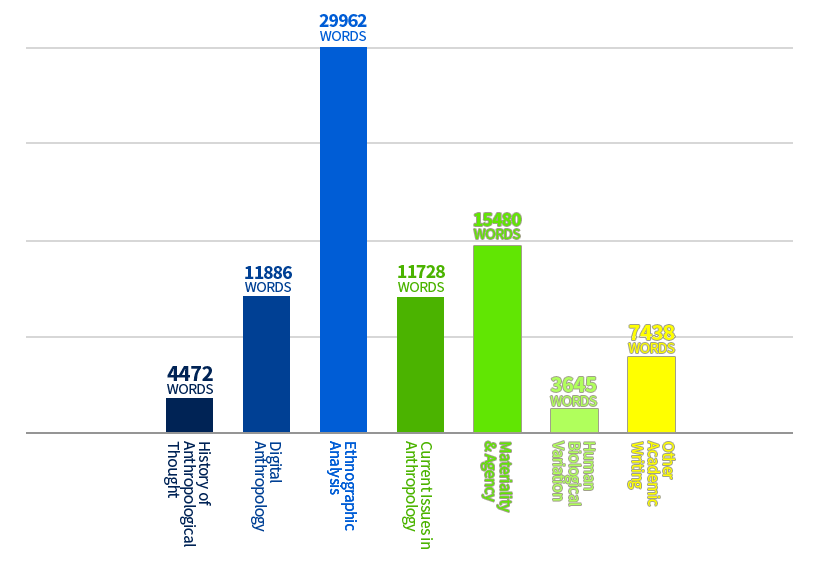
My Top Words

- Ontology (119)
- Human (70)
- Social (66)
- Theory (64)
- Compute (58)
- Thing (57)
- Material (53)
- Practice (52)
- System (52)
- Use (50)
- Technology (49)
- Anthropology (46)
- Experience (43)
- Science (42)
- Epistemology (41)
Other Pursuits
I presented at two conferences (AAA13 & TtW14).

I worked 748 hours as a web developer.

Final GPA: 4.0

And, who knows how many coffees and lost hours of sleep there were.
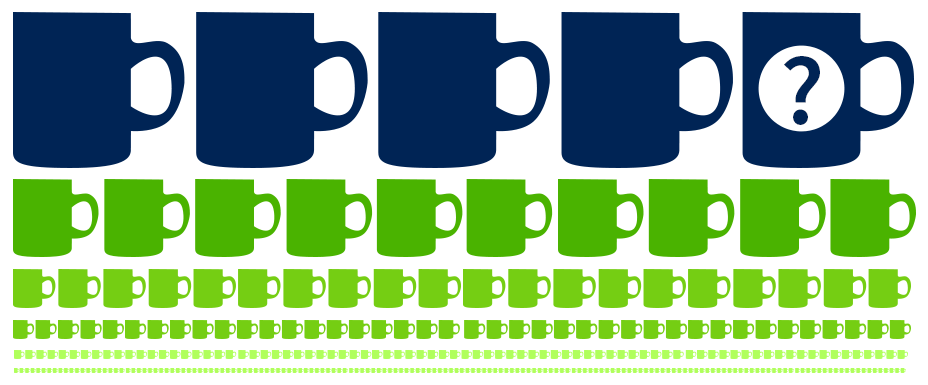
Thoughts
At times I felt like I wasn't going to make it. This year has been the most difficult and challenging bit of my career to date. However, now that it is over I am glad that I did it. I have learned a lot, made some great friends, and feel like I have accomplished something. More importantly, I started this program because I knew I had research questions I wanted to explore. Questions that needed more time, dedication and knowledge to answer than I was able to give on my own. This year has prepared me to ask those questions and begin exploring the answers.
In other words...

Addendum
More than a few people have commented on my program's requirements. Binghamton University's anthropology department requires more than one year of courses for a PhD. However, unlike many students, I started the program with a completed BS and MA in anthropology, three years experience as an anthropology adjunct, and six years of applied anthropological web development experience. Thus, I was able to reduce my course requirements (those required to earn an MA on the way to a PhD) and have a fairly well established dissertation project from day one. Also, I am lucky to be gainfully employed while pursuing my PhD and, thus, I did not apply for departmental funding. This means that I do not have to maintain a full-time course load as a condition of accepting departmental funding. So, I took all of my required class in one year. That way I can focus on preparing for qualifying exams and my dissertation requirements without needing to worry about taking classes too. If you came to this page because you are considering a PhD, keep this in mind. My road through academia is mostly atypical. If you have just finished your bachelor's degree, you should expect to take more years of coursework and have to fulfill additional requirements for the MA. Most programs have their requirements listed on their website. That said, this infographic is, in my experience, a good representation of what a year of graduate school course work looks like in anthropology.